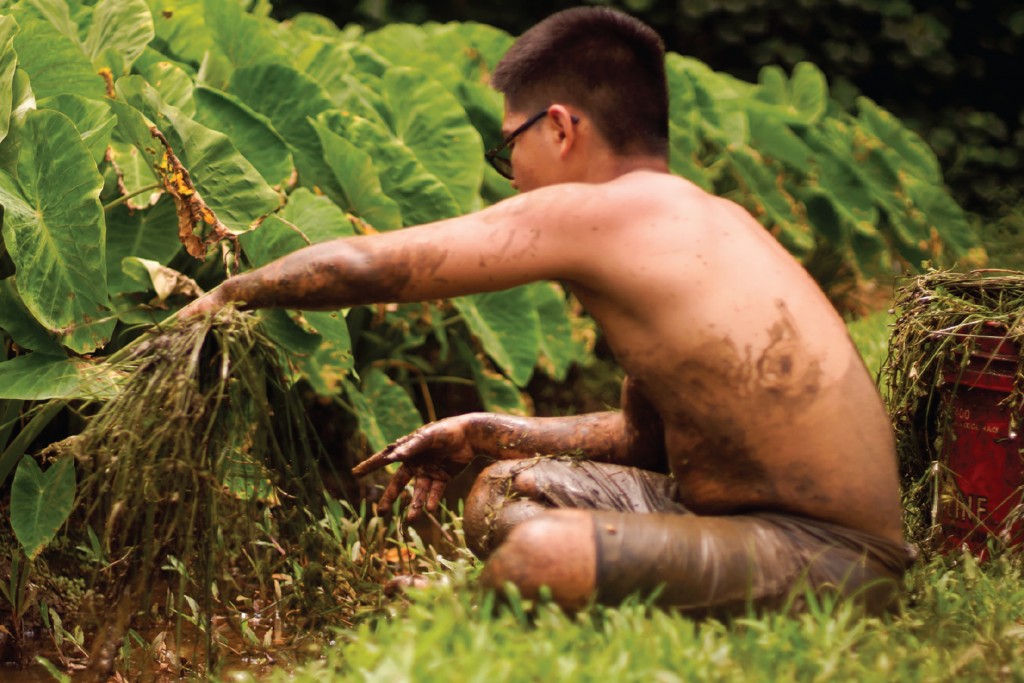

The nonprofit called Partners in Development Foundation uses “ancestral ‘ike kupuna Hawaiian values and traditions to empower families for success,” says President and CEO Shawn Kana‘iaupuni.
Successful families, she says, lead to “healthy and thriving, resilient communities.”
PIDF says that since its founding in 1997, it has served 128,000 family members across the Hawaiian islands. Kana‘iaupuni says it’s currently supporting about 33 communities, including many homeless people.
Alison Masutani, VP of operations, says Jan Dill founded PIDF after reading that 53% of local kindergartners were not able to read at an appropriate level. “He knew in his heart that the majority of the keiki were Native Hawaiians,” she says.
The solution was to help both keiki and caregivers, because a caregiver can be a child’s most important teacher, the person who prepares a child for success in school and life.
One PIDF program is Tutu and Me, a traveling preschool that helps families with children 5 and under. It aims to meet the educational and emotional needs of families so “keiki will enter school ready to learn and succeed,” says Kana‘iaupuni.
PIDF pivoted during the pandemic to deliver food and hygiene supplies to needy communities. It also partnered with Kamehameha Schools and other organizations to support families with distance learning, as many families that PIDF serves do not have computers or internet access.
“We took it very strongly to heart that we wanted to stay open and be a service to our communities and maintain that connection with them,” Kana‘iaupuni says.
PIDF also understands that pride is crucial to success.
“At one point, because of the overthrow of the Hawaiian kingdom, many of the Hawaiian people were ashamed of who they were,” Masutani says.
“By focusing and honoring the culture and showing the Hawaiian people that they come from a very special place, we aim to elevate their sense of pride and self, and break that generational poverty.” Doing so, she says, helps people create a better future for themselves and their children.
Nathaniel Momosea, 19, served in Ke Kama Pono – a program and safehouse built upon Native Hawaiian values that helps adjudicated males ages 13-17 to become productive community members.
He says PIDF motivated him to stay on the right path and has been key to his success.
After leaving the safehouse, he began working for PIDF’s farming program and then joined the Ke Kama Pono staff so he could support others who face the same circumstances he did.
“I was a criminal with harsh charges, so it is hard to get a job and it puts on a lot of stress. I am most grateful for PIDF because they gave me opportunities to work despite my background.”
PIDF says it is open to all and welcomes volunteers at its website, pidf.org/giving. The nonprofit also welcomes donations of money, goods and services.